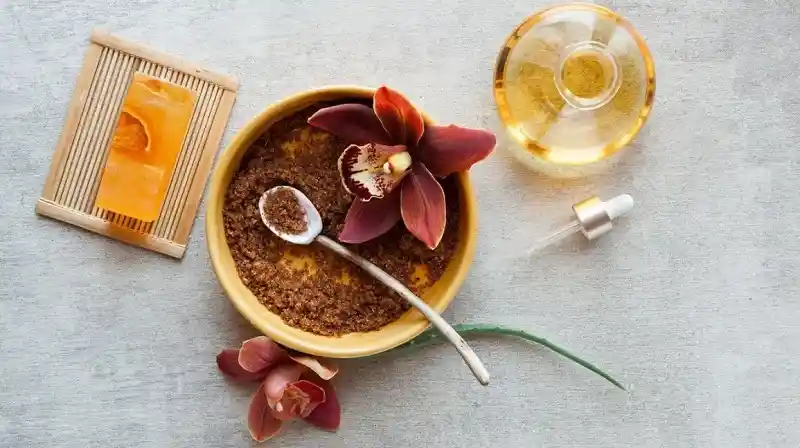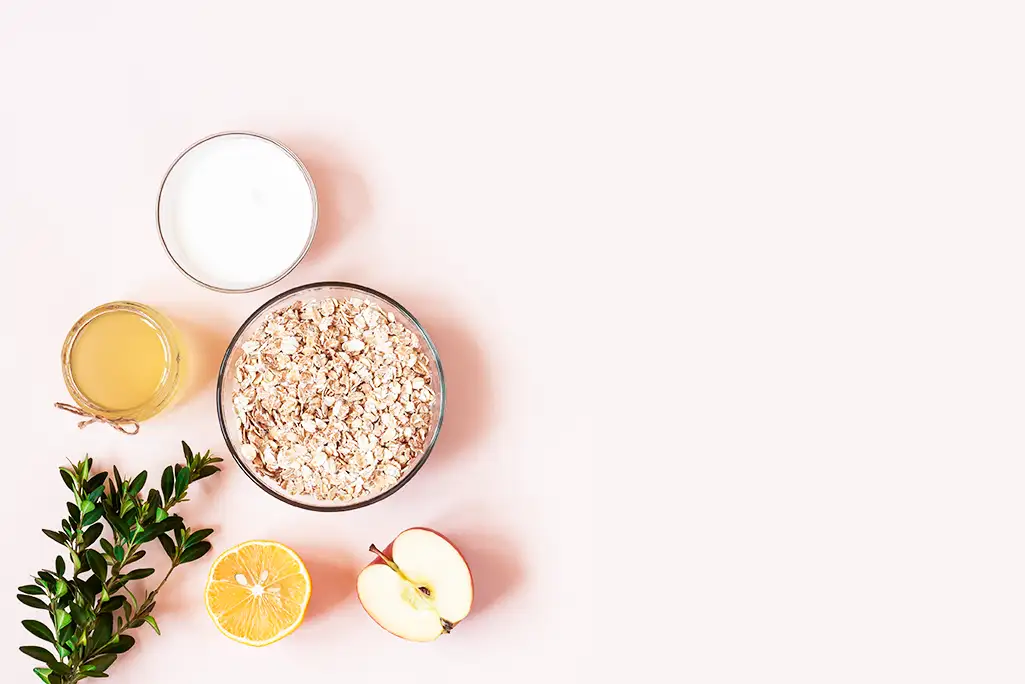Importance of Skincare
Taking care of your skin is really important for teenagers. You should wash your face with a facewash twice a day. After that, put on a good moisturizer to keep your skin soft. It’s also important to use sunscreen to protect your skin from the sun. If your skin is oily, use products that don’t add more oil. If your skin is dry, make sure to use something that adds moisture to keep your skin looking young. For healthy skin, try these effective skincare routine for teenagers by using natural things like aloe Vera, honey, rice water, mud masks, and milk.
Why Skincare Is Important For Teenagers
Hormonal Changes
- When you’re a teenager, your body makes more hormones.
- These hormones can make your skin produce more oil, leading to pimples and blackheads.
- Taking care of your skin helps keep it clean and healthy.
Prevention of Future Skin Issues
- Starting a skincare routine early can stop problems like acne scars and wrinkles later on.
- If you take care of your skin now, you’ll have fewer issues in the future.
Boosts Confidence
- Teenagers often worry about how they look.
- Having clear and healthy skin can make you feel better about yourself and more confident.
Sun Protection
- Using sunscreen every day is important. It keeps your skin safe from sunburn and skin cancer.
- Learning this early helps you protect your skin for life.
Establishing Good Habits
- A skincare routine teaches you how to take care of yourself.
- It also helps you learn what your skin needs, which is important for keeping it healthy as you grow up.
How To Identify Your Skin Type
Normal Skin
- Characteristics: Balanced moisture, not too oily or dry. Pores are small and less visible.
- How It Feels: Soft and smooth, not prone to breakouts or irritation.
Oily Skin
- Characteristics: Shiny appearance, especially in the T-zone (forehead, nose, chin). Enlarged pores, and prone to acne and blackheads.
- How It Feels: Greasy or slick, makeup may slide off easily.
Dry Skin
- Characteristics: Flaky, rough, and may feel tight, especially after cleansing. Pores are small and not very visible.
- How It Feels: Itchy or irritated, prone to fine lines and peeling.
Combination Skin
- Characteristics: Oily in some areas (usually the T-zone) and dry or normal in others (cheeks and jawline). Pores may be larger in the oily areas.
- How It Feels: Balanced in some areas but shiny in others, often requiring different products for different areas.
Sensitive Skin
- Characteristics: Easily irritated, redness, and may react to certain products. Often feels itchy or inflamed.
- How It Feels: Prone to burning or stinging sensations, especially after applying certain products.
Tailoring Skincare to Your Skin Type
Normal Skin
- Cleanser: Use a gentle, hydrating cleanser that won’t strip your skin of its natural oils.
- Moisturizer: A lightweight, non-greasy moisturizer to maintain balance.
- Additional Tips: You can experiment with products like serums or masks, but stick to those that are hydrating and not too harsh.
Oily Skin
- Cleanser: Opt for a foaming or gel-based cleanser to remove excess oil and prevent clogged pores.
- Moisturizer: Choose an oil-free, mattifying moisturizer to keep shine under control.
- Additional Tips: Use products with salicylic acid or benzoyl peroxide to control acne and reduce oil. Avoid heavy creams.
Dry Skin
- Cleanser: A creamy, hydrating cleanser that won’t dry out your skin further.
- Moisturizer: Rich, emollient moisturizers that lock in moisture. Look for ingredients like hyaluronic acid and glycerin.
- Additional Tips: Incorporate a hydrating serum or face oil into your routine. Avoid products with alcohol or harsh exfoliants.
Combination Skin
- Cleanser: A balancing cleanser that can address both oily and dry areas without irritating either.
- Moisturizer: Use a lightweight moisturizer on oily areas and a richer one on dry areas, or find a product suitable for combination skin.
- Additional Tips: Consider using different products for different areas of your face, such as a mattifying product on the T-zone and a more hydrating one on the cheeks.
Sensitive Skin
- Cleanser: Choose a gentle, fragrance-free cleanser with soothing ingredients like aloe or chamomile.
- Moisturizer: A calming moisturizer with minimal ingredients to avoid irritation.
- Additional Tips: Avoid products with alcohol, fragrances, or harsh chemicals. Look for labels that say “hypoallergenic” or “for sensitive skin.”
General Tips
- Sunscreen: Regardless of your skin type, always use sunscreen with at least SPF 30 daily to protect your skin from UV damage.
- Patch Test: When trying new products, always do a patch test to check for any adverse reaction
Natural And DIY Skincare

Benefits of Natural Ingredients
Gentle on the Skin
- Natural ingredients tend to be less irritating and more compatible with the skin’s natural processes.
- They are often rich in vitamins, minerals, and antioxidants that nourish the skin without causing harm.
Rich In Nutrients
- Many natural ingredients are packed with essential nutrients that promote skin health.
- For example, aloe Vera is rich in vitamins and has soothing properties, while honey is full of antioxidants and is a natural humectant that draws moisture into the skin.
Fewer Harsh Chemicals
- Natural skincare products often avoid harmful chemicals like parabens, sulfates, and synthetic fragrances, reducing the risk of irritation, allergic reactions, and long-term damage to the skin.
Eco-Friendly
- Natural ingredients are usually more sustainable and environmentally friendly.
- They are often sourced from plants and herbs that are renewable and biodegradable, reducing the ecological footprint of your skincare routine.
Soothes Sensitive Skin
- Ingredients like chamomile, oatmeal, and calendula are known for their calming properties, making them ideal for those with sensitive or easily irritated skin.
- They help to reduce redness, itching, and inflammation.
Anti-Aging Benefits
- Many natural ingredients, like green tea, rosehip oil, and pomegranate, are rich in antioxidants that help fight free radicals, which contribute to aging.
- These ingredients can help reduce the appearance of wrinkles and promote a youthful glow.
Promotes Skin Healing
- Natural ingredients such as tea tree oil, manuka honey, and aloe vera have antibacterial, anti-inflammatory, and healing properties.
- They can help treat acne, reduce scars, and speed up the healing process for various skin concerns.
DIY Skincare Recipes

Honey And Oatmeal Face Mask
- Ingredients
- 1 tablespoon honey
- 1 tablespoon ground oatmeal
- A few drops of water (optional)
- Instructions
- Mix the honey and ground oatmeal in a small bowl.
- If the mixture is too thick, add a few drops of water to create a paste.
- Apply the mask to your face and leave it on for 15-20 minutes.
- Rinse off with warm water and pat your skin dry.
- Benefits: Honey is a natural humectant and has antibacterial properties, while oatmeal soothes and gently exfoliates the skin.
Cucumber And Yogurt Face Cleanser
- Ingredients
- 1/4 cucumber, peeled and chopped
- 2 tablespoons plain yogurt
- Instructions
- Blend the cucumber until smooth.
- Mix it with the yogurt to create a creamy cleanser.
- Apply to your face and gently massage in circular motions.
- Rinse off with lukewarm water.
- Benefits: Cucumber cools and refreshes the skin, while yogurt contains lactic acid to gently exfoliate and hydrate.
Coconut Oil and Sugar Scrub
- Ingredients
- 1/4 cup coconut oil (melted)
- 1/2 cup sugar (white or brown)
- Optional: A few drops of your favorite essential oil (like lavender or peppermint)
- Instructions
- Mix the melted coconut oil and sugar together in a bowl.
- Add a few drops of essential oil if desired.
- Gently massage the scrub onto damp skin in circular motions.
- Rinse off with warm water and pat dry.
- Benefits: Coconut oil hydrates and nourishes the skin, while sugar exfoliates, leaving your skin soft and smooth.
Avocado And Banana Face Mask
- Ingredients
- 1/2 ripe avocado
- 1/2 ripe banana
- 1 tablespoon olive oil (optional for extra hydration)
Effective Skincare Routine STEPS

Cleanse
- Wash your face twice a day once in the morning and once before bed.
- Use a gentle cleanser to remove dirt, oil, and sweat.
- This helps keep your pores clean and prevents breakouts.
Moisturize
- After cleansing, apply a moisturizer to keep your skin hydrated. Even if your skin is oily, it still needs moisture.
- Choose a lightweight, non-greasy moisturizer.
Sun Protection
- Always apply sunscreen in the morning, even on cloudy days.
- This protects your skin from harmful UV rays that can cause sunburn, wrinkles, and even skin cancer.
Spot Treatment
- If you have a pimple, use a spot treatment to target it.
- Products with benzoyl peroxide or salicylic acid can help reduce acne.
Don’t Touch Your Face
- Try not to touch your face throughout the day.
- Your hands can carry dirt and germs, which can lead to more breakouts.
Remove Makeup
- If you wear makeup, make sure to remove it before bed.
- Leaving makeup on can clog your pores and cause acne.
Stay Hydrated And Eat Healthy
- Drinking water and eating fruits and vegetables can also help your skin look its best.
- Healthy skin starts from the inside out.
Pros
- Prevents Future Skin Issues: Starting a skincare routine early can help prevent future skin problems like acne, blackheads, and even premature aging.
- Builds Good Habits: Developing a routine in your teenage years sets a foundation for lifelong healthy skin habits.
- Boosts Confidence: Clear, healthy skin can boost a teenager’s self-esteem, which is especially important during these formative years.
- Tailored to Skin Changes: Teenage skin often goes through hormonal changes that can lead to increased oil production and breakouts. A targeted skincare routine can help manage these issues.
- Early Education: Learning about skincare products and ingredients early on helps teenagers make informed decisions about their skin in the future.
Cons
- Overuse of Products: Teenagers might be tempted to use too many products, which can lead to skin irritation, dryness, or even more breakouts.
- Expense: Skincare products can be costly, and finding the right ones might require trying multiple products, which adds up over time.
- Time-Consuming: Maintaining a routine, especially if it involves multiple steps, can feel time-consuming and might not always fit into a teenager’s busy schedule.
- Risk of Incorrect Products: Choosing the wrong products for their skin type can worsen skin problems. For example, using harsh products on sensitive skin can cause irritation.
- Unrealistic Expectations: Teenagers might expect immediate results and become discouraged if they don’t see improvements right away, leading to inconsistency in their routine.
Here Some Faqs About Your Skin Problems
What’s the most important step in a teenager’s skincare routine?
Answer: The most important step is cleansing. Teenagers often have oily or acne-prone skin due to hormonal changes, so it’s crucial to cleanse the skin twice a day—morning and night—to remove excess oil, dirt, and impurities. Look for a gentle cleanser that’s suitable for your skin type, and avoid harsh scrubs that can irritate the skin.
How can teenagers prevent acne breakouts?
Answer: To prevent acne, it’s important to follow a consistent skincare routine that includes cleansing, moisturizing, and using products with acne-fighting ingredients like salicylic acid or benzoyl peroxide. Avoid touching your face frequently, don’t pop pimples, and make sure to remove makeup before bed. A healthy diet and drinking plenty of water can also help keep your skin clear.
Do teenagers need to use moisturizer, even if they have oily skin?
Answer: Yes, moisturizing is essential for all skin types, including oily skin. Choose a lightweight, oil-free, or gel-based moisturizer that hydrates the skin without clogging pores. Proper hydration helps balance oil production and keeps your skin looking healthy.
Is sunscreen necessary for teenagers?
Answer: Absolutely! Sunscreen is a must for teenagers, just like for adults. UV rays can cause skin damage, premature aging, and increase the risk of skin cancer. Use a broad-spectrum sunscreen with at least SPF 30 daily, even on cloudy days. Look for non-comedogenic (won’t clog pores) formulas to avoid breakouts.

